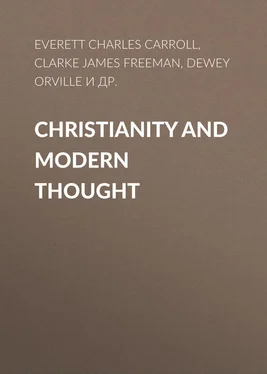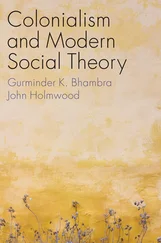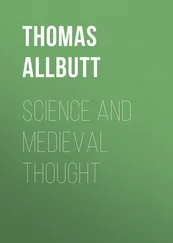Andrew Peabody - Christianity and Modern Thought
Здесь есть возможность читать онлайн «Andrew Peabody - Christianity and Modern Thought» — ознакомительный отрывок электронной книги совершенно бесплатно, а после прочтения отрывка купить полную версию. В некоторых случаях можно слушать аудио, скачать через торрент в формате fb2 и присутствует краткое содержание. Жанр: foreign_antique, foreign_prose, на английском языке. Описание произведения, (предисловие) а так же отзывы посетителей доступны на портале библиотеки ЛибКат.
- Название:Christianity and Modern Thought
- Автор:
- Жанр:
- Год:неизвестен
- ISBN:нет данных
- Рейтинг книги:5 / 5. Голосов: 1
-
Избранное:Добавить в избранное
- Отзывы:
-
Ваша оценка:
- 100
- 1
- 2
- 3
- 4
- 5
Christianity and Modern Thought: краткое содержание, описание и аннотация
Предлагаем к чтению аннотацию, описание, краткое содержание или предисловие (зависит от того, что написал сам автор книги «Christianity and Modern Thought»). Если вы не нашли необходимую информацию о книге — напишите в комментариях, мы постараемся отыскать её.
Christianity and Modern Thought — читать онлайн ознакомительный отрывок
Ниже представлен текст книги, разбитый по страницам. Система сохранения места последней прочитанной страницы, позволяет с удобством читать онлайн бесплатно книгу «Christianity and Modern Thought», без необходимости каждый раз заново искать на чём Вы остановились. Поставьте закладку, и сможете в любой момент перейти на страницу, на которой закончили чтение.
Интервал:
Закладка:
A gospel of mere law is no sufficient gospel. It teaches prudence, but omits Providence. This utilitarian doctrine, which reduces every thing to law, – which makes the Deity only a Great Order, not a Father or Friend, – would soon put a stop to the deepest spring of human progress. It takes faith and hope out of our life, and substitutes observation, calculation, and prudence. But the case of Ecclesiastes and of Faust teaches us what comes from knowledge emptied of faith. He who increases such knowledge increases sorrow. The unknown, wonderful Father; the divine, mysterious Infinite; the great supernatural power and beauty above Nature, and above all, – these alone make life tolerable. Without this brooding sense of a Divine love, of a Heaven beyond this world, of a Providence guiding human affairs, men would not long have the heart to study, because all things would seem to be going nowhere. Without such a Heavenly Friend to trust, such an immortal progress to hope, all things would seem to revolve in a circle. Not to believe in something more than a God of Law is to be without God in the world, is to be without hope. And hope is the spring of all progress, intellectual progress as well as all other. Intellect, divorced from faith, at last kills intellect itself, by destroying its inner motive. It ends in a doctrine of despair, which cries continually, "What is the use?" and finds no answer. And so the soul dies the only death the soul can die, – the death of torpor and inaction.
Another false idea in Theology, which interferes with human progress, is that of ecclesiastical authority in matters of faith and practice. When the Church comes between the soul and God, and seeks to be its master rather than its servant, it takes from it that direct responsibility to God, which is one of the strongest motives for human effort. I know that this has always been done from a sincere desire, at any rate in the beginning, to save men from apparent dangers. The Church has assumed authority, in order to do good with it. It has commanded men not to think for themselves, lest they should err. But God has meant that we should be liable to error, in order that we should learn to avoid it by increased strength. Therefore Christ said, "Be not called Rabbi; be not called Masters, and call no man father on earth." His church, and his apostles, and he himself are here, not to be masters of the soul, but to be its servants.
The Roman Catholic Church is a great organization, which has gradually grown up, during a thousand years, the object of which has been to educate men in Christian faith and Christian conduct. It has sincerely endeavored to do this. But, unfortunately, it took a narrow view of Christian education; supposing that it meant instruction and guidance, restraint and tuition, but not development. It has magnified its own authority, in order to produce docility in its pupils. It has not allowed them freedom of inquiry nor liberty of conscience. It has not said, like Paul, "Be not children in understanding;" on the contrary, it has preferred to keep them children, so as to guide them more easily. It has not said, with Paul, "Stand fast in the liberty wherewith Christ has made you free;" for it has come to hate the very name of liberty. What is the result? You may read it to-day in France, where, as Mr. Coquerel tells us, that Church has prevented the steady development of free institutions. It has always supported the principle of authority in the State, as the natural ally of authority in the Church. There are so few republicans in France to-day, because the people have been educated by the Church to blind submission. The priests are not to blame, the people are not: it is the Roman Catholic Theology which is to blame. That Theology teaches that the soul is saved by the reception of external sacraments, and not by vital, independent convictions of truth. 6 6 The proof of this may be amply found in the famous Encyclical and Syllabus of Pius IX., Dec. 8th, 1864. In the Syllabus he denounces as errors such propositions as the following: — That "every man is free to embrace and profess that religion which guided by the light of reason, he holds to be true." § 15. That "one may well hope, at least, for the eternal salvation of those who are in no wise in the true Church of Christ." § 17. That "the Church has no power to employ force." § 24. That "men emigrating to Catholic countries should be permitted the public exercise of their own several forms of worship." § 78. That "the Roman Pontiff can and ought to reconcile and harmonize himself with progress, with liberalism, and with modern civilization." § 80.
Or, if you wish another illustration of the same thing, look at New York. Why have republican institutions in New York almost proved a failure? Why were a few robbers able to take possession of the city, and plunder the citizens? Because they could control the votes of the Irish Catholics in a mass; because this vast body of voters were unable to vote independently, or to understand the first duties of a free citizen. And why was this? Not because the Irish are naturally less intelligent than the New-Englanders, the English, the Germans. No; but the Roman Catholic Church, which has had the supreme control over the Irish conscience and intellect for a thousand years, has chosen to leave them uneducated. Of course, the Roman Church, if it had pleased to do so, might long ago have made the Irish nation as enlightened as any in Europe. But its Theology taught that education might lead them into heresy, and so take them out of the true Church, and that ignorance in the Church was infinitely better than any amount of intellectual and moral culture out of it. The fatal principle of Roman Catholic Theology – "Out of the true Church there is no salvation" – has been the ruin of the Irish nation for hundreds of years, and has very nearly entailed ruin on our own.
Do you wonder that the priests oppose our school system? If I were a Roman Catholic priest, I should oppose it too. Should I run the risk of poisoning my child's body by accepting as a gift a little better food than that I am able to buy? And shall I risk the vastly greater evil of poisoning its soul, by allowing it to be tainted with heretical books and teachers in free schools? The Roman Catholic priest is consistent: it is the Theology which teaches salvation by sacraments that is to blame. It is a theology which naturally, logically, necessarily, stands opposed to human progress. It says, "In order to be children in malice, you must also be children in understanding."
When the Protestant Reformation came, it brought with it a manly Theology. It put the Bible into all men's hands, and asserted for each the right of private judgment and liberty of conscience. Therefore the Reformation was the cause of a great forward movement in human affairs. It awakened the intellect of mankind. Science, literature, invention, – all were stimulated by it. It ran well, but something hindered. Its reverence for the Bible was its life; but, unfortunately, it soon fell into a worship of the letter . It taught a doctrine of verbal inspiration. It forgot the great saying of Paul, "not of the letter, but the spirit; for the letter killeth." Very soon that saying was fulfilled. Reverence for the letter of the Bible killed the spirit of the Bible. That spirit is as free as air. It teaches no creed, it demands no blind acceptance of any dogma. It declares that where the spirit of the Lord is, there is liberty. But the letter-theology has opposed nearly all the discoveries of science and all moral reforms with the words of the Bible. It has set Genesis against geology, and the book of Psalms against the Copernican system. Because the Book of Genesis says the heavens and earth were made in six days, the letter-theology declared that the fossil shells were made in the rocks just as they are, or were dropped by pilgrims returning from the Holy Land. Because the book of Psalms said that "God hath established the earth so that it shall not be moved for ever," the letter-theology denied its daily and yearly revolution. Because Noah said, "Cursed be Canaan," the letter-theology defended the slavery of the negro. Because Noah also said, "He who sheddeth man's blood, by man shall his blood be shed," the letter-theology has defended capital punishment as a religious duty. Because the Jews were commanded to rest on the seventh day, the letter-theology forbids the Boston Public Library to be open on the first. Becoming ever more timid and more narrow, it clings to the letter of the common English translation, and the received text. It even shrinks from alterations which would give us the true letter of the Bible, instead of the false one.
Читать дальшеИнтервал:
Закладка:
Похожие книги на «Christianity and Modern Thought»
Представляем Вашему вниманию похожие книги на «Christianity and Modern Thought» списком для выбора. Мы отобрали схожую по названию и смыслу литературу в надежде предоставить читателям больше вариантов отыскать новые, интересные, ещё непрочитанные произведения.
Обсуждение, отзывы о книге «Christianity and Modern Thought» и просто собственные мнения читателей. Оставьте ваши комментарии, напишите, что Вы думаете о произведении, его смысле или главных героях. Укажите что конкретно понравилось, а что нет, и почему Вы так считаете.












